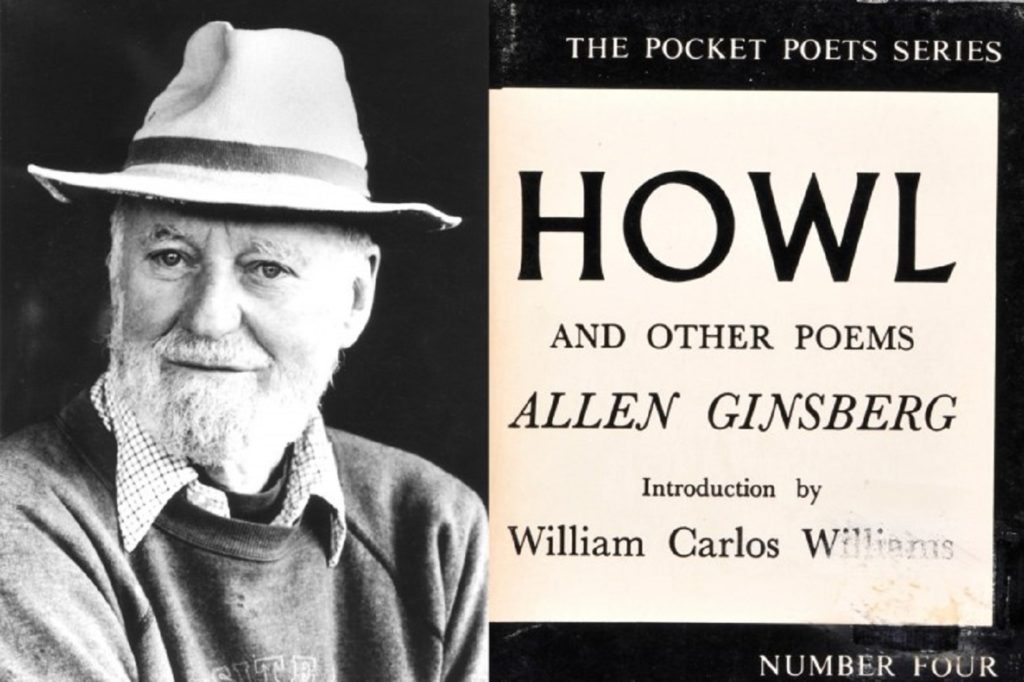Unperson: “A public figure, especially in a totalitarian country, who, for political or ideological reasons, is not recognized or mentioned in government publications or records or in the news media. A person accorded no recognition or consideration by another or by a specific group. . . . Introduced in George Orwell’s novel 1984 (1949)”—Dictionary.com
It seems somehow fitting that the great beat poet and artist Lawrence Ferlinghetti, departed this mortal realm (at the age of 101) on February 22, 2021, the day after Amazon.com digitally unbooked When Harry Became Sally. Authored by Ryan T. Anderson, president of the Ethics and Public Policy Center and founder of Public Discourse, When Harry Became Sally offers a critical assessment of the transgender movement.
Anderson is an honest and careful scholar, one who makes a real effort to understand his opponents’ arguments and answer them with charity and rigor. Anderson’s views are not in ascendancy among elites these days, as is evident by the vitriol hurled at him by activists as soon as When Harry Became Sally was published. These critics, I am afraid to say, are not at all interested in debate, discussion, or a careful sifting through the evidence and arguments. What they seek is absolute unquestioned conformity to their views, policed by roving cyberspace inquisitors whose mission is to extract confessions from their targets and to inculcate in them the habit of unforgiving social justice scrupulosity. This is not to say that Anderson does not have some serious academic critics who raise penetrating questions about the quality of his sources, the strength of his arguments, and the nature of his project. Here I am thinking of two critical reviews that appeared in the Journal of Medical Humanities and Studies in Christian Ethics.
But that’s all the more reason why Amazon’s removal of Anderson’s book from its catalog is so pernicious: it marginalizes from the public conversation an intelligent and informed voice that should be confronted and taken seriously by those who disagree with him. As my esteemed Baylor colleague, Alan Jacobs, points out:
Start your day with Public Discourse
Sign up and get our daily essays sent straight to your inbox.The censors at Amazon clearly believe there is only one reason to read a book. You read a book because you agree with it and want it to confirm what you already believe. Imagine, for instance, a transgender activist who wants to understand the position held by Ryan Anderson and people like him in order better to refute it. That person can’t get a copy of the book through Amazon any more than a sympathetic reader like me can.
What does all this have to do with Ferlinghetti? More than you may think. Founder of the small press City Lights Books, he published in late 1956 Howl and Other Poems, authored by the beat poet Allen Ginsberg. Soon after the book was published, Ferlinghetti was arrested on obscenity charges. The reason? The book’s poems included lines that contained graphic descriptions of sex acts, and thus, the government reasoned, it was legally obscene.
Charged in municipal court by the district attorney of San Francisco with having published and sold obscene and indecent materials in violation of California’s penal code, Ferlinghetti pleaded not guilty. Ruling in Ferlinghetti’s favor, Judge Clayton Horn explained why the government did not meet its burden to prove that Howl was obscene: (1) although the book contains some shocking vulgarities, it is not technically obscene, for the work as a whole does not appeal to prurient interests, and (2) it has redeeming social value. On the latter, Judge Horn writes:
I do not believe that “Howl” is without redeeming social importance. The first part of “Howl” presents a picture of a nightmare world; the second part is an indictment of those elements in modern society destructive of the best qualities of human nature; such elements are predominantly identified as materialism, conformity, and mechanization leading toward war. The third part presents a picture of an individual who is a specific representation of what the author conceives as a general condition.
In other words, “Howl” is disorienting, shocking, offensive, harshly critical of modern society, and non-conformist. It dared to challenge what American elites in the culture of the 1950s were convinced were the acceptable limits of what enlightened and educated people could believe, say, publish, or call poetry. This, under our Constitution, is protected speech, as it should be. The only permissible censorship, writes Judge Horn, “is by the people as self-guardians of public opinion and not by government.”
But does this not show that the censorship of Ferlinghetti is not comparable to the unbooking of Anderson? After all, Amazon is a private company and not the government, and thus the wrong done to Anderson is permissible under our laws.
That is certainly true, as a technical legal matter. But that simply reveals the inadequacy of our present laws on commerce and communication technologies, almost all of which were passed prior to the internet age or at its infancy, e.g. Section 230 of the 1996 Communications Decency Act. The framers of these laws could never have imagined what we have today: an ideologically uniform collection of private actors with virtual market-share monopolies, complete unchecked discretion on who is allowed and not allowed to speak in what is effectively the modern public square, and the power to instantaneously and artificially inhibit the people from realizing their role as “self-guardians of public opinion.” You simply cannot have a free society for very long with that sort of arrangement.
It is not clear what legal changes could remedy this. But what is clear is that our nineteenth- and twentieth-century understandings of antitrust, the public square, state power, and the free market are presently incapable of cabining corporate forces that are hostile to the perpetuation of a free society.
The plight of Anderson and like-minded writers is in some ways worse than was the plight of Ferlinghetti and his fellow travelers.
For this reason, the plight of Anderson and like-minded writers is in some ways worse than was the plight of Ferlinghetti and his fellow travelers. The latter could plead their cases in courts of law, they had numerous other options and outlets for publication and distribution, and they could rely on many loosely connected private groups and associations scattered across the United States that could spread the word about beat poetry without the fear of being surveilled and cancelled by omnipresent tech companies. But for Anderson and his friends, the opportunities are far fewer.
Once Amazon—which some estimate accounts for 70-80 percent of all book sales and 50 percent of all e-commerce—declares one of your works an unbook, there is little doubt that publishing houses will think twice about offering you a contract for your next manuscript. To prospective authors, especially academics, who are thinking about publishing a book that takes a position that contravenes the dominant cultural narratives, the lesson is clear: we are not interested, regardless of the quality of your work.
While Ferlinghetti was told by the San Francisco D.A. precisely what he did wrong and why his book should be banned, Amazon first responded to Anderson with unhelpful vague generalities that raise more questions than they answer. After making several inquiries, Anderson’s publisher, Encounter Books, was told by Amazon “that the book was removed because it violated Amazon’s new ‘content guidelines’ against ‘offensive’ material or ‘hate speech.’” This seems like an odd charge, not only because the book’s content does not fit that description, but also because Amazon continues to carry Mein Kampf, The Protocols of the Elders of Zion, and the works of Louis Farrakhan. Perhaps realizing the absurdity of their initial charge, Amazon went back to the drawing board, and in response to a series of questions posed by four US Senators, now claims that When Harry Became Sally was unbooked because Amazon has “chosen not to sell books that frame LGBTQ+ identity as a mental illness,” even though Anderson never calls transgender people “mentally ill.”
What Anderson does do in the book is defend one answer to the question of how medical professionals should treat patients with gender dysphoria. Some people think his answer is mistaken. In a free society committed to the acquisition of truth for the common good, one should not only find such disagreements unremarkable, one should welcome them as an opportunity to clarify one’s own views or to change one’s mind or the minds of one’s interlocutors, especially when it concerns a question of how best to alleviate human suffering. To say such disagreements are just a matter of “framing,” as Amazon does, reveals that its leaders do not understand what books with arguments are for, just as Ferlinghetti’s censors did not understand what books of poems are for.
I confess that at first glance it seems strange to pair Ferlinghetti with Anderson. Ferlinghetti (born in 1919) was a left-wing beatnik poet and avant garde publisher who, along with Ginsberg and others, was instrumental in laying the groundwork in the 1950s for what would eventually develop into the counterculture. That movement advanced the cause of sexual liberation, which over the subsequent decades resulted in increasing cultural acceptance of gay rights and eventually same-sex marriage and transgender identity. Anderson (born in 1981) is a right-wing political scientist and president of a well-known conservative think tank. He is the author of several books and many articles in which he argues against virtually everything for which Ferlinghetti stood.
What they have in common, however, is the courage of their convictions, a willingness to challenge the conventional pieties of their respective ages, and to do so in ways that conformist critics are quick to label offensive, obscene, unsafe, or misframed. Ferlinghetti did so with his art. Anderson does it with his scholarship. Each has something important to say, and to criticize. This is exactly what we should expect and welcome in a free society.














